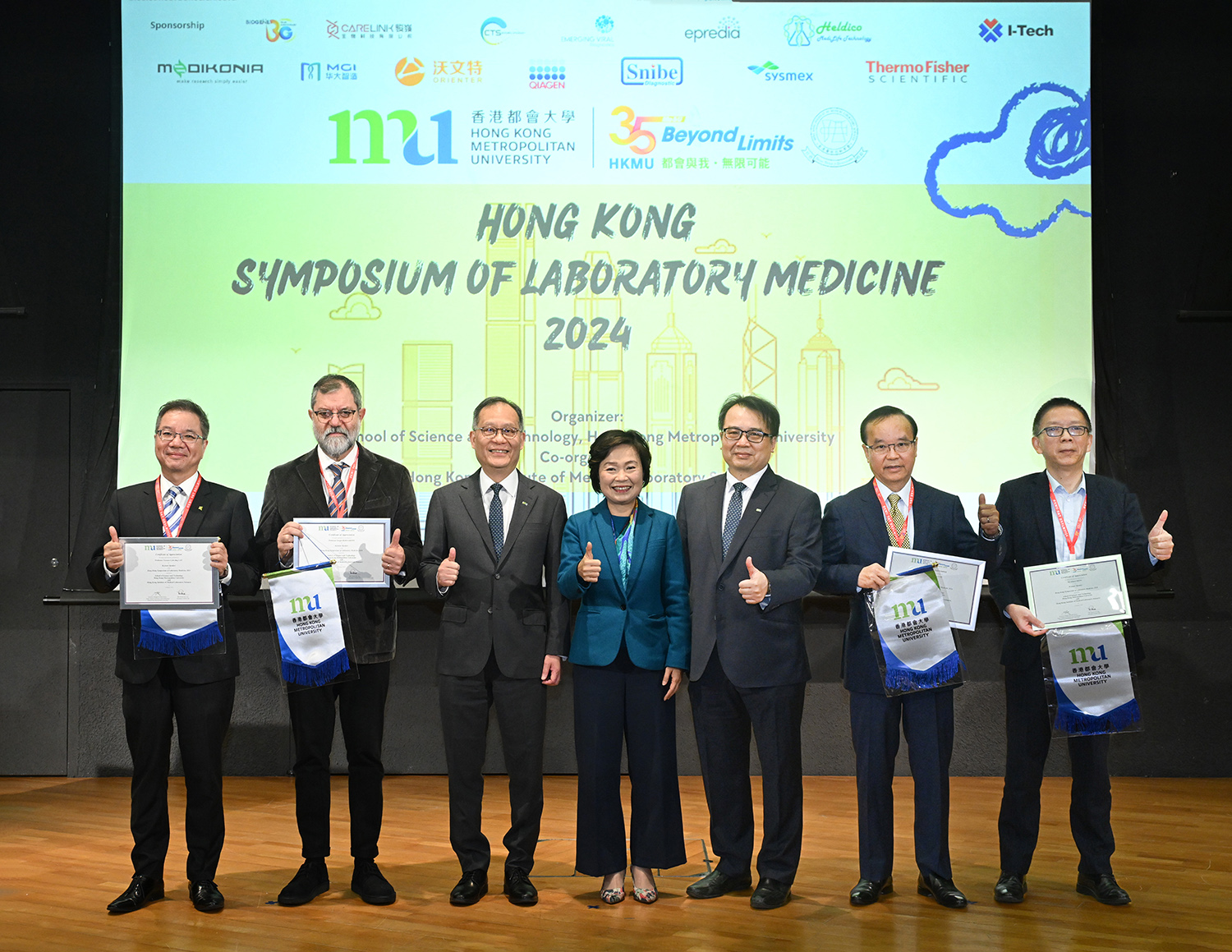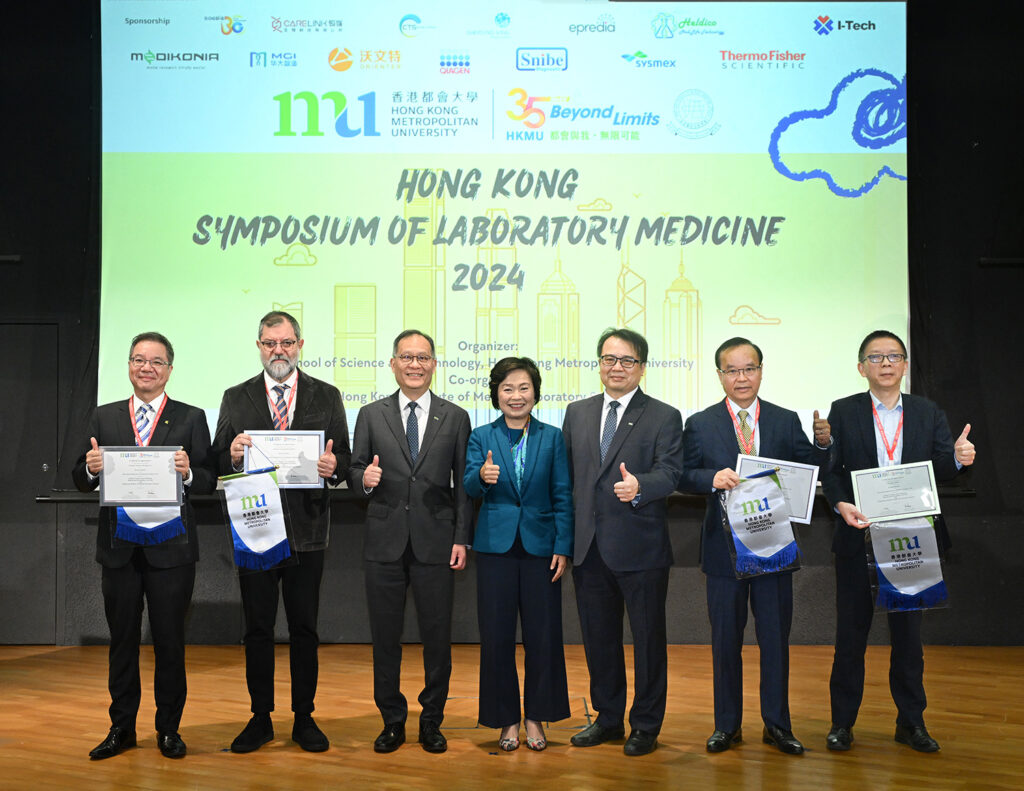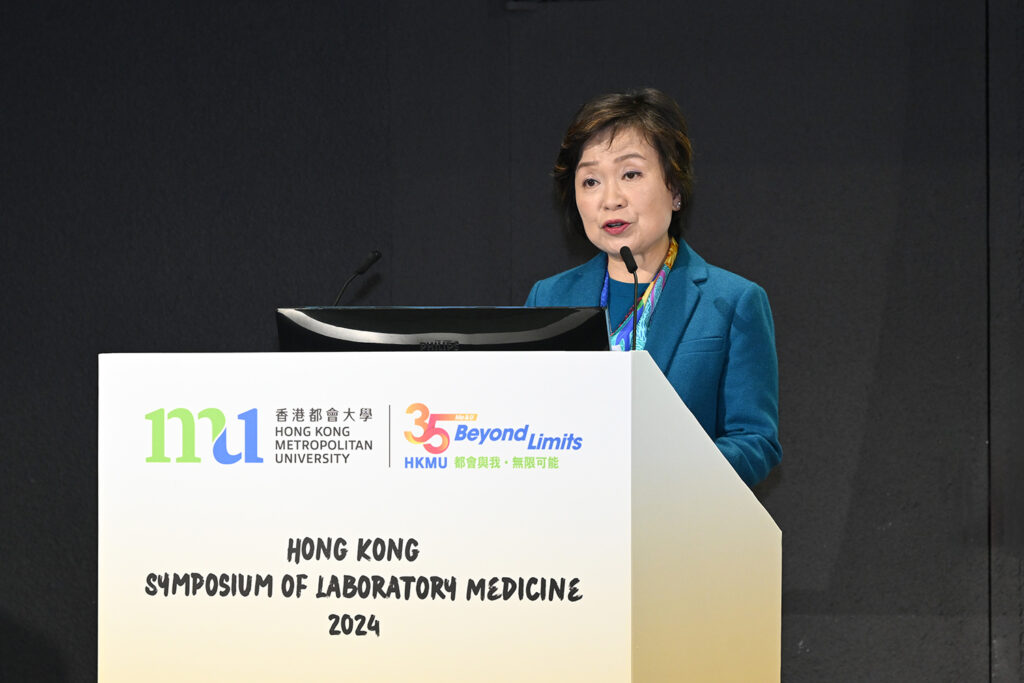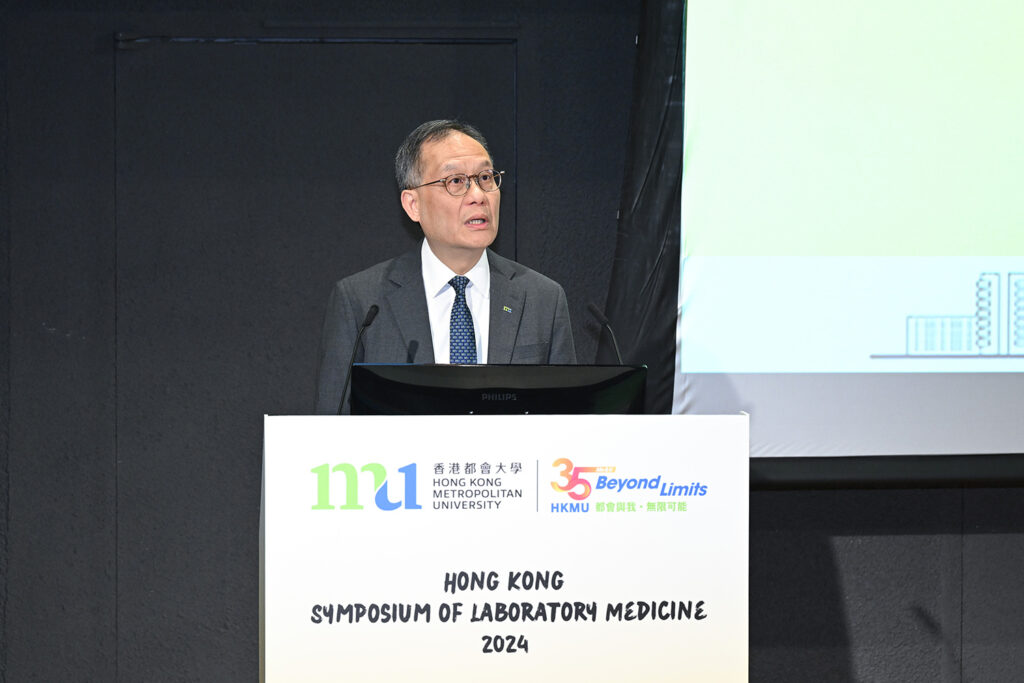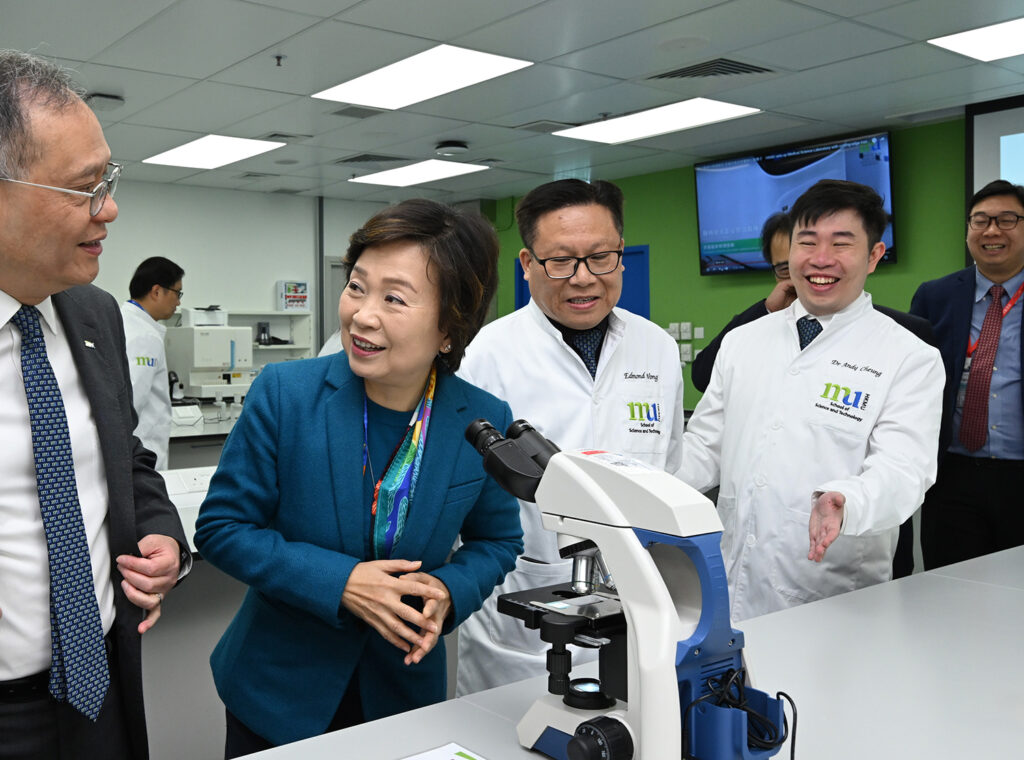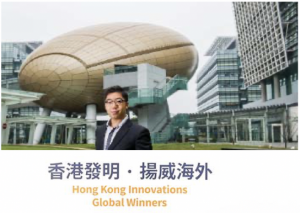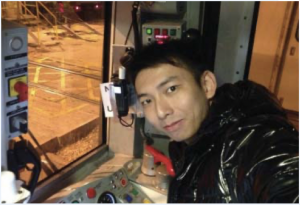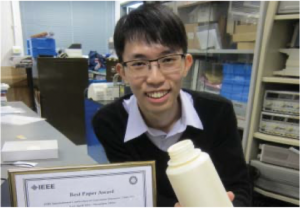The inaugural Hong Kong Symposium of Laboratory Medicine, organised by Hong Kong Metropolitan University (HKMU) in collaboration with the Hong Kong Society for Medical Laboratory Science, was successfully held yesterday (6 January). As the first major academic exchange event in celebration of HKMU’s 35th anniversary, the symposium received an overwhelming response, attracting about 250 participants, including experts, academics, researchers, and industry and government representatives. Through a series of presentations and discussions, the participants were able to acquire related professional knowledge, keep abreast of the latest developments in the field of laboratory medicine, exchange experience and explore opportunities for collaboration.
Secretary for Education of the HKSAR Government Dr Choi Yuk-lin was invited to be the Guest of Honour of the symposium. Together with HKMU President Prof. Paul Lam Kwan-sing and Dean of the School of Science and Technology Prof. Philips Wang Fu-lee, she officiated at the grand opening ceremony of the HKMU Medical Science Laboratory. This marked the official launch of the 7,000-square-foot laboratory, which is equipped with cutting-edge professional equipment.
In 2021, HKMU received a grant of over HK$40 million from the Education Bureau’s Enhancement and Start-up Grant Scheme for Self-financing Post-secondary Education. This served as start-up funding for the Bachelor of Science with Honours in Medical Laboratory Science programme, which encompassed the establishment of the Medical Science Laboratory. The laboratory is divided into five dedicated areas, which support teaching and research in the five core disciplines in the programme: clinical haematology and transfusion science, clinical chemistry and immunology, medical microbiology, cellular pathology, and molecular diagnostics.
In her opening speech, Dr Choi Yuk-lin said that medical laboratory technologists emerge as vital guardians of public health, particularly in light of an aging population and the consequent increased demand for healthcare services. It is therefore most timely that HKMU, as one of the major providers of nurse and allied health professional training, launched the inaugural Bachelor of Science with Honours in Medical Laboratory Science programme this academic year. “The Education Bureau will continue to work closely with HKMU and other self-financing institutions to further strengthen the quality and strategic positioning of self-financing post-secondary education, with a view to providing multiple pathways for our young people, addressing the manpower needs of our society, and solidifying Hong Kong’s positioning as an international education hub,” she said.
Prof. Paul Lam Kwan-sing said that the Bachelor of Science with Honours in Medical Laboratory Science programme, which was launched last year, had received an overwhelming response, with applications far exceeding expectations, demonstrating the strong demand for professionals in the field. He expressed his sincere gratitude to the HKSAR Government and the Education Bureau for their generous support, which enabled HKMU to successfully launch the programme and establish the Medical Science Laboratory. “The University will integrate smart technologies into the laboratory setting, a highly innovative concept that will help enhance the quality of teaching and research,” said Prof. Lam. “This initiative will position HKMU as the first tertiary institution with such smart laboratory in Hong Kong, and even in the Greater Bay Area. This concept is also aligned with the University’s vision of developing a smart campus.”
The full-day symposium featured four keynote speeches by Prof. Sergio Bernardini, Chair of the Emerging Technologies Division of the International Federation of Clinical Chemistry and Laboratory Medicine (IFCC); Prof. Terence Lau Lok-ting, Interim Chief Innovation Officer of Hong Kong Baptist University (HKBU); Deng Zhiwu, Marketing Manager of Sichuan Orienter Biotechnology Co., Ltd; and Dr Yam Wing-cheong, Honorary Associate Professor in the Department of Microbiology at the University of Hong Kong (HKU). Their insightful perspectives and unique experience shed light on new technologies and trends in the field of laboratory medicine.
The newly opened Medical Science Laboratory was also open for visits by the participants, showcasing state-of-the-art instruments commonly used in hospitals. The laboratory is designed to complement the Medical Laboratory Science programme by providing students with a wide range of application and practice opportunities through the use of advanced technology and interdisciplinary collaboration, as well as on-site teaching to enhance pre-service training to nurture more medical laboratory professionals. The University also plans to make the laboratory fully intelligent with advanced equipment, such as a digital laboratory monitoring system, a robotic system and smart goggles, to develop it into the first smart teaching medical science laboratory in Hong Kong.





